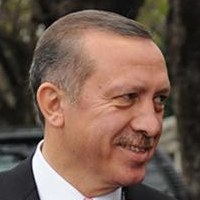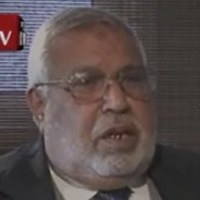![]()
RubinReports | By Barry Rubin
While the State of the Union message was overwhelmingly domestically oriented, the foreign policy sections were most interesting. I’ll review them here.
The president began in the same neo-patriotic mode used in the second inaugural address, with a special emphasis on thanking U.S. troops. He used the imagery of the end of World War Two paralleling the return of troops from Iraq to promote his idea that the American economy must be totally restructured.
Obama defined his main successes — careful to credit the military (whose budget he seeks to cut deeply and whose health benefits he’s already reduced) rather than his usual emphasis on taking the credit for himself — were the following points:
“For the first time in nine years, there are no Americans fighting in Iraq.
“For the first time in two decades, Osama bin Laden is not a threat to this country.
“Most of Al Qaida’s top lieutenants have been defeated. The Taliban’s momentum has been broken. And some troops in Afghanistan have begun to come home.”
Now there certainly have been accomplishments on these three fronts but these claims are also profoundly misleading and very carefully worded. Let’s take them one at a time.
- It is true that U.S. forces are largely out of Iraq yet this was inevitable, with one key reservation. There was no likelihood they would be there in a large combat role forever. Whatever one thinks of the invasion of Iraq, the American forces were staying for an interim period until the Iraqi army was ready. Any successor to George W. Bush would have pulled out the combat forces.
The reservation, of course, is that it was the success of the surge—which Obama opposed and his new secretary of defense (yes, he will be confirmed) Chuck Hagel opposed. So he is taking credit for a policy that was inevitable and that was made possible by a success that he was against.
Lest you think that assessment is unfair to Obama consider this: he did absolutely nothing to make this outcome happen. No policy or strategy of his administration made the withdrawal faster or more certain.
- This is a strange phrase: “For the first time in two decades, Osama bin Laden is not a threat to this country.” It is a new way of putting the Obama killed Osama meme while hinting that al-Qaida is not a threat to the United States. Well, as Benghazi shows, al-Qaida is still a threat but wording the sentence the way Obama did implies otherwise without saying so and looking foolish at making an obviously false claim.
- Notice a very strange and ungrammatical formulation: “Most of Al Qaida’s top lieutenants have been defeated.” I think this can only be understood as an incomplete change in the traditional slogan that al-Qaida has been defeated. The administration can no longer make this argument so it is looking for something that gets in bin Ladin’s assassination and that of other al-Qaida leaders (al-Qaida has been decapitated) with hinting that al-Qaida has been defeated.
In other words, someone did a bad job of proofreading the speech. Of course, all of this glosses over the fact that al-Qaida hasn’t been defeated. It is on the march in Mali, the Gaza Strip, Somalia, Egypt’s Sinai Peninsula, Yemen, and other places.
Incidentally, al-Qaida will always be defeated politically because it has no strong political program or structure. That’s why al-Qaida kills but the Muslim Brotherhood wins. And Obama is helping the Muslim Brotherhood.
As for the Taliban, again there is a cute formulation: its “momentum has been broken.” In other words, the Taliban has survived, it is still launching attacks, and it might even take over large parts of Afghanistan after American troops leave. Momentum has been broken is just a fancy way of saying that its gaining power has been slowed down. Of course, after American troops leave, that momentum will probably speed up again.
In his second mention of foreign affairs, Obama spoke of economic issues, he says:
“My message is simple. It is time to stop rewarding businesses that ship jobs overseas and start rewarding companies that create jobs right here in America. Send me these tax reforms, and I will sign them right away.”
In fact, though, businesses are not fleeing the United States because the wages are lower there while the Obama Administration puts into effect increasingly tight and costly regulations and imposes higher costs (including the impact of Obamacare). Moreover, wages are lower overseas.
Obama’s policies don’t — in the strict sense of the term — reward businesses for shipping jobs overseas; they merely punish businesses for remaining in America. Taxing executives more while adding to the regulatory and cost burden will make things worse.
He continues:
“We’re also making it easier for American businesses to sell products all over the world. Two years ago, I set a goal of doubling U.S. exports over five years. With the bipartisan trade agreements we signed into law, we’re on track to meet that goal ahead of schedule.
“And soon there will be millions of new customers for American goods in Panama, Colombia, and South Korea. Soon, there will be new cars on the streets of Seoul imported from Detroit, and Toledo, and Chicago.”
This sounds good but it’s a fantasy. To speak of doubling U.S. exports is insane except for one point. If Obama’s policies lead to massive inflation and the decline of the dollar, foreign customers will want to unload their dollars and take advantage of relatively falling American prices. This will not, however, benefit the American people much.
If one wants to analyze Obama’s claims the auto industry is the place to start. Look at the policies of General Motors, the most favored and government-influenced of all American companies, which has shipped jobs overseas. If American cars are on those foreign streets, it will be because they were manufactured in China. (I wonder if Obama’s choice of South Korea rather than China as the Asian country in his list was deliberately made to conceal that fact.)
And then, par for the course, he announces a new and unneeded additional bureaucracy called the Trade Enforcement Unit that will carry on investigations that could be done by existing institutions.
That’s how Obama creates jobs.
He continues,
“I will not cede the wind or solar or battery industry to China or Germany because we refuse to make the same commitment here. We’ve subsidized oil companies for a century. That’s long enough.”
Well, in fact it is easy to show that his investments in wind, solar, and battery industries have been an abject failure. One would have thought Obama would avoid that topic except that his immunity to prosecution by the mass media makes him bold here. There are deep structural reasons why China is ahead — lower wages, lower costs, less regulation, and less safety. That’s not going to change. Obama is doubling down on a losing proposition.
Then he produces a real whopper:
“Ending the Iraq war has allowed us to strike decisive blows against our enemies.”
This is a coded reference to the anti-Iraq war argument that intervention in that country was tying down American forces that could be used elsewhere. Obama is saying: Now that we are out of Iraq we’ll really get those terrorists!
Yet Obama has claimed victory over the terrorists while U.S. forces in Iraq were at their height. His own statements undercut that argument. And what big new way is the United States been striking blows at its enemies since the withdrawal? I cannot think of anything (continued drone strikes in Yemen?). But if you think that the Benghazi terrorists (not the California videomaker), the Egyptian Muslim Brotherhood, Hamas in particular, the Syrian Brotherhood and Salafists, Hizballah, etc., are “enemies” then how has the Obama Administration escalated efforts against them now that it has pulled all those troops out of Iraq and can spare them for other operations?
Like much of Obama’s speech, if one actually pays attention to the language and claims, it dissolves into ridiculousness.
Obama continues:
“From Pakistan to Yemen, the Al-Qaida operatives who remain are scrambling, knowing that they can’t escape the reach of the United States of America.”
I see no evidence of that. The biggest hits to the al-Qaida leadership, except for the killing of bin Ladin — happened during the Bush Administration. Of course, Obama carefully picked his examples. Where other than Pakistan and Yemen might they live in fear? Certainly not in Libya.
Then we come to the “Arab Spring”:
“As the tide of war recedes, a wave of change has washed across the Middle East and North Africa, from Tunis to Cairo, from Sana’a to Tripoli.”
Obama could have said the same thing two years ago. Since then, however, the shaky coalition government in Tunisia is crumbling after the most courageous opposition leader was assassinated and the Brotherhood is tightening its hold. In Egypt, the Brotherhood is in power and at the very moment Obama was speaking was engaged in repressing street protests. In Yemen, substantially nothing has changed. In Tripoli (it was wise not to mention Libya’s other main city, Benghazi) there is a reasonable level of success.
Perhaps the greatest change in governance has come in Iraq, but Obama doesn’t want to mention that because that would imply a tip of the hat to George W. Bush. By the way, is Obama going to urge Mahmoud Abbas, the Palestinian Authority leader, to hold elections when he visits Ramallah in late March? He’s still governing three years after his term ended.
It was wise for Obama to emphasize who is leaving rather than who is coming into power:
“A year ago, Gadhafi was one of the world’s longest-serving dictators, a murderer with American blood on his hands. Today, he is gone.”
Hm, someone in Libya with “American blood on his hands”? Glad there’s nobody like that around anymore!
“And in Syria, I have no doubt that the Assad regime will soon discover that the forces of change cannot be reversed and that human dignity cannot be denied.”
Oh, I’ll bet that a lot of Syrians are going to learn that human dignity can be denied in the face of ethnic massacres and a new regime where the Muslim Brotherhood rules and Salafists run around free to do as they please. (Though for U.S. interests it will be an improvement things could have been much better if America helped the moderates instead of the Islamists.)
“And while it’s ultimately up to the people of the region to decide their fate, we will advocate for those values that have served our own country so well. We will stand against violence and intimidation. We will stand for the rights and dignity of all human beings, men and women, Christians, Muslims, and Jews. We will support policies that lead to strong and stable democracies and open markets, because tyranny is no match for liberty.”
Strange, but the democratic opposition movements say the precise opposite. See for example the open letter to Obama, written in the last few days, by an Egyptian human rights’ activist begging the president to stop helping and praising the oppressive forces!
“And we will safeguard America’s own security against those who threaten our citizens, our friends, and our interests. Look at Iran. Through the power of our diplomacy, a world that was once divided about how to deal with Iran’s nuclear program now stands as one. The regime is more isolated than ever before. Its leaders are faced with crippling sanctions. And as long as they shirk their responsibilities, this pressure will not relent. Let there be no doubt: America is determined to prevent Iran from getting a nuclear weapon, and I will take no options off the table to achieve that goal.”
But Iran will get nuclear weapons, it continues working on them at a full pace, and you will spend this year in fruitless negotiations to try to persuade them to stop.
“The renewal of American leadership can be felt across the globe. Our oldest alliances in Europe and Asia are stronger than ever. Our ties to the Americas are deeper. Our iron-clad commitment — and I mean iron-clad — to Israel’s security has meant the closest military cooperation between our two countries in history.”
Really? That’s not what I hear from people all over the world. It is the absence of American leadership they feel, sometimes to their great cost. Ask the Poles, and the Czechs, and the Saudis, and the democratic oppositionists in Iran and Syria, and so on. Ask the Peruvians and the Colombians if they feel American leadership is protecting them from Venezuela and other radical forces in the region.
And it is true that military cooperation with Israel is good — which is to say, normal not the greatest in history — but what Israeli leader believes that Obama can be relied on? The ones I speak to usually say something like this: “I never thought I’d see the day when we couldn’t depend on America.”
Incidentally, a number of analyses I’ve seen since writing this article emphasize Obama’s nice sentence about Israel as if it is of great importance or some kind of revelation. It is standard — even though he repeated the word “iron-clad” — and denotes absolutely nothing new. I don’t think Obama will do much in regards to bilateral relations but let’s be frank here: Since Obama believes he knows better what Israel security needs are than do its leaders then anything he does is “pro-Israel” even if it is against Israel’s will.
I’m not trying to make any dramatic point here — again, bilateral relations will continue to be okay — but to point out the bizarre way Obama’s statements get interpreted in order to praise him. The same applies to his standard sentence on keeping all options open regarding Iran’s nuclear program.
“From the coalitions we’ve built to secure nuclear materials, to the missions we’ve led against hunger and disease, from the blows we’ve dealt our enemies, to the enduring power of our moral example, America is back. Anyone who tells you otherwise, anyone who tells you that America is in decline or that our influence has waned, doesn’t know what they’re talking about.”
Think about the kind of mental construct that could produce this paragraph, which is unintentionally revealing. It shows Obama’s pattern of either refusing to acknowledge legitimate dissent (all the experts agree with me) and that he knows best (Israel doesn’t know what’s good for itself).
Yes, Mr. President, a lot of people around the world don’t think that America is back or that it still protects their back. And they do know what they are talking about and can cite many specific examples from your administration.
The next paragraph requires no comment from me. See if you can finish it and not be laughing:
“That’s why, working with our military leaders, I’ve proposed a new defense strategy that ensures we maintain the finest military in the world, while saving nearly half a trillion dollars in our budget.”
Not budget cuts to the military but “saving” money. So that it can be spent on green energy projects?
Barry Rubin is director of the Global Research in International Affairs (GLORIA) Center and editor of the Middle East Review of International Affairs (MERIA) Journal. His latest book, “Israel: An Introduction“, has just been published by Yale University Press. Other recent books include “The Israel-Arab Reader” (seventh edition), “The Long War for Freedom: The Arab Struggle for Democracy in the Middle East” (Wiley), and “The Truth About Syria” (Palgrave-Macmillan). The website of the GLORIA Center and of his blog, Rubin Reports. His original articles are published at PJMedia.



 RSS
RSS











[…] In giving his State of the Union speech, President Barack Obama will presumably brag about his greatest supposed achievement in the Middle East: Support for democracy and human rights. […]